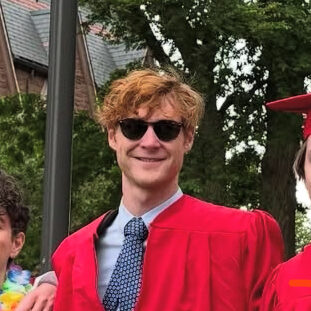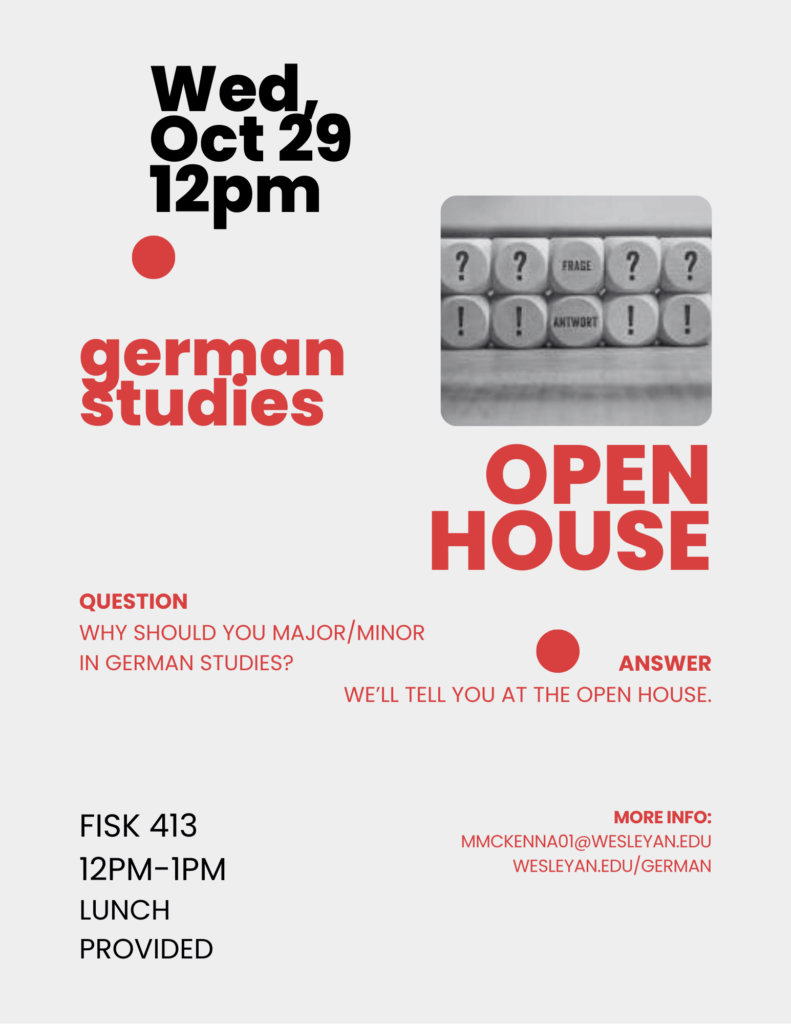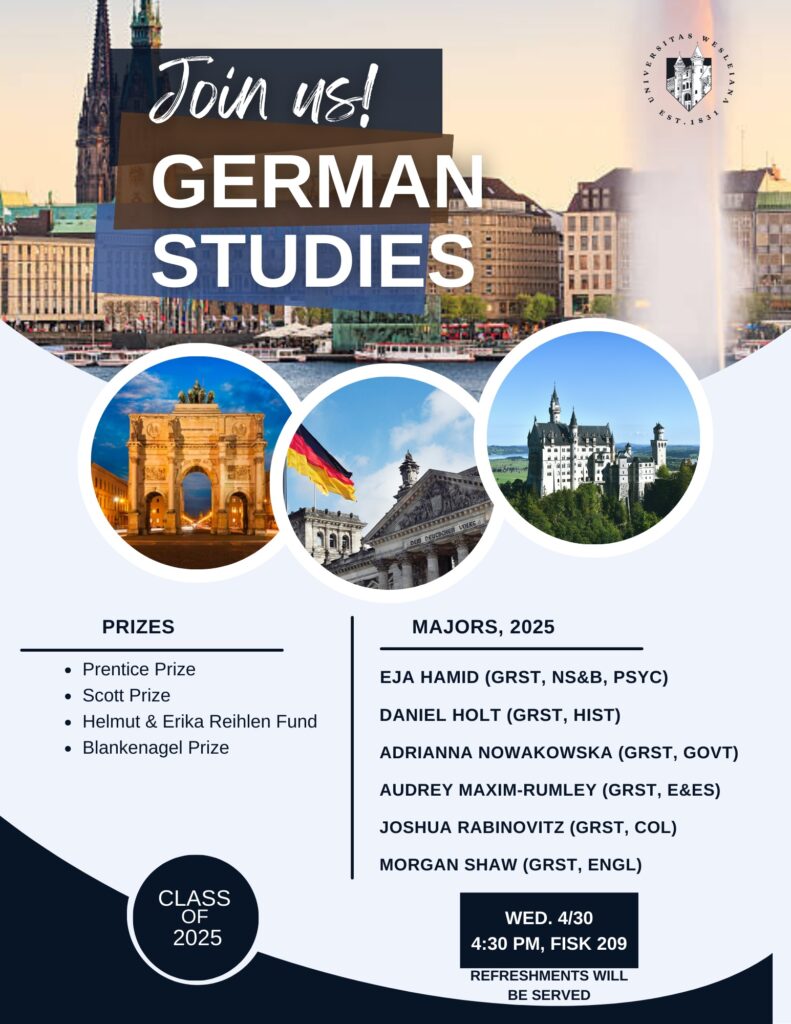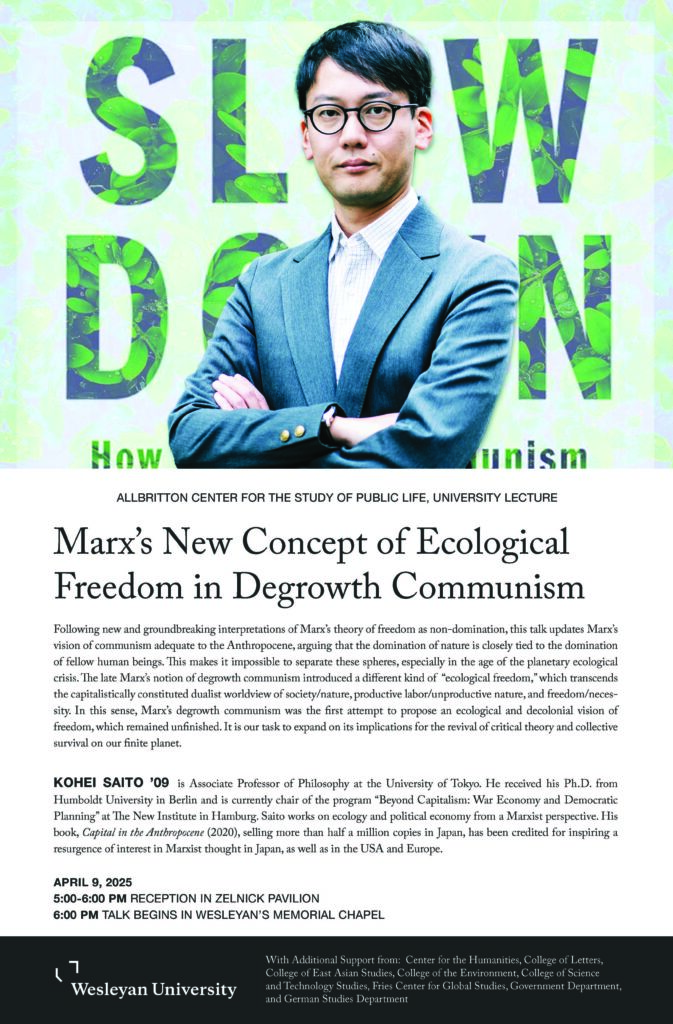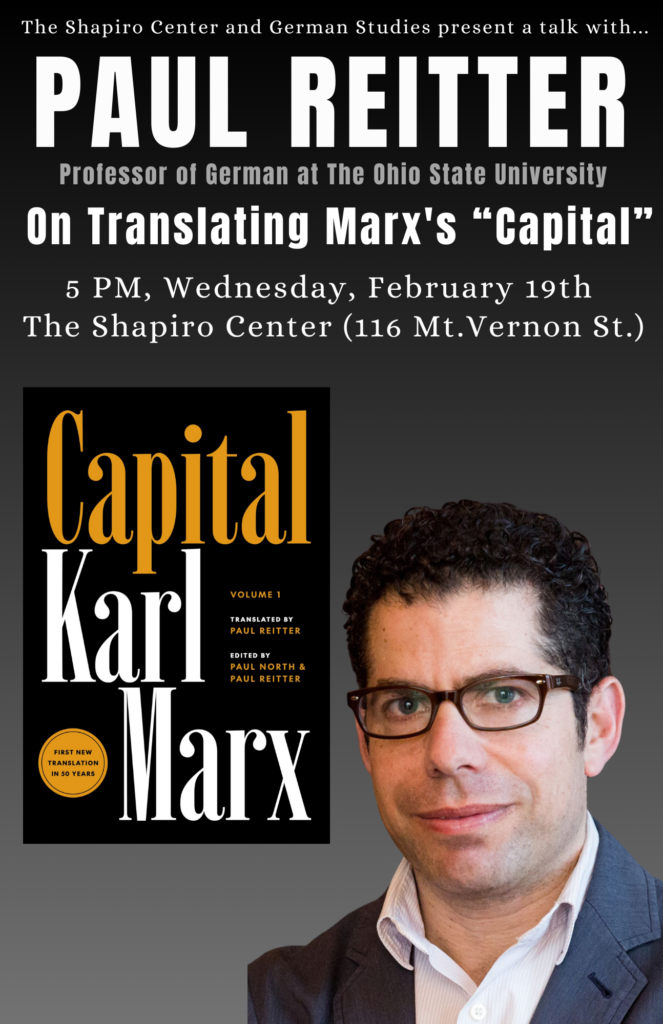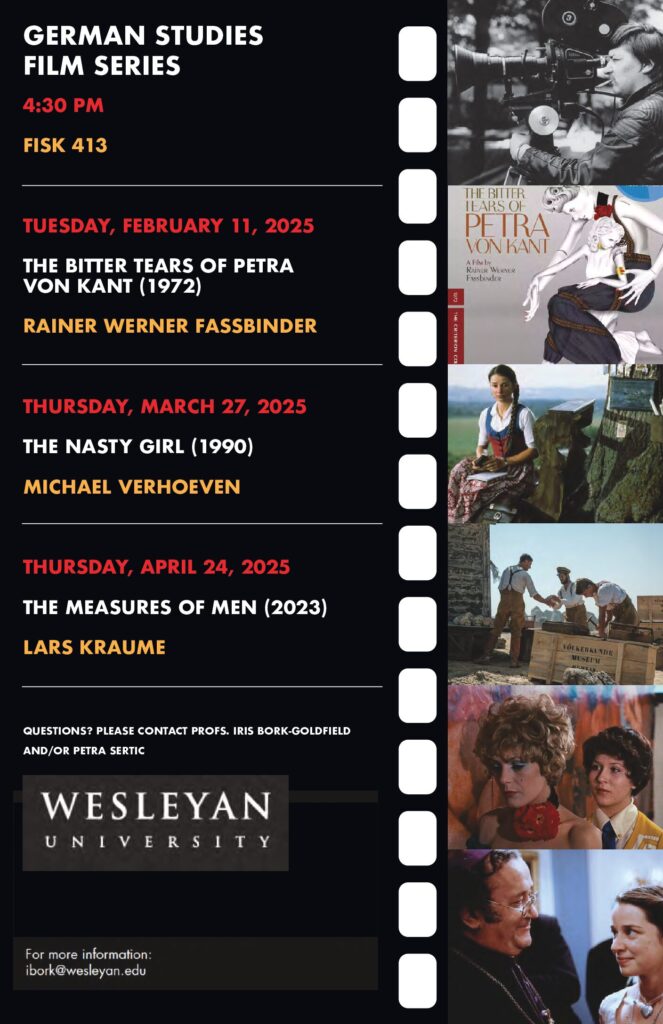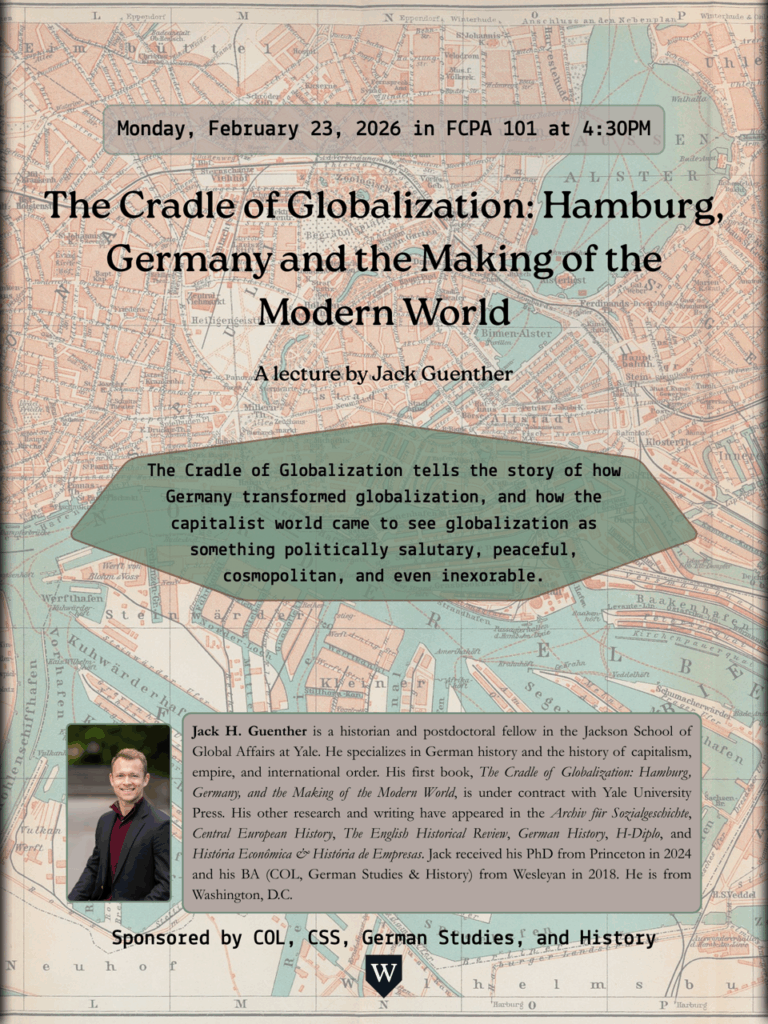
GRST Class of 2025!
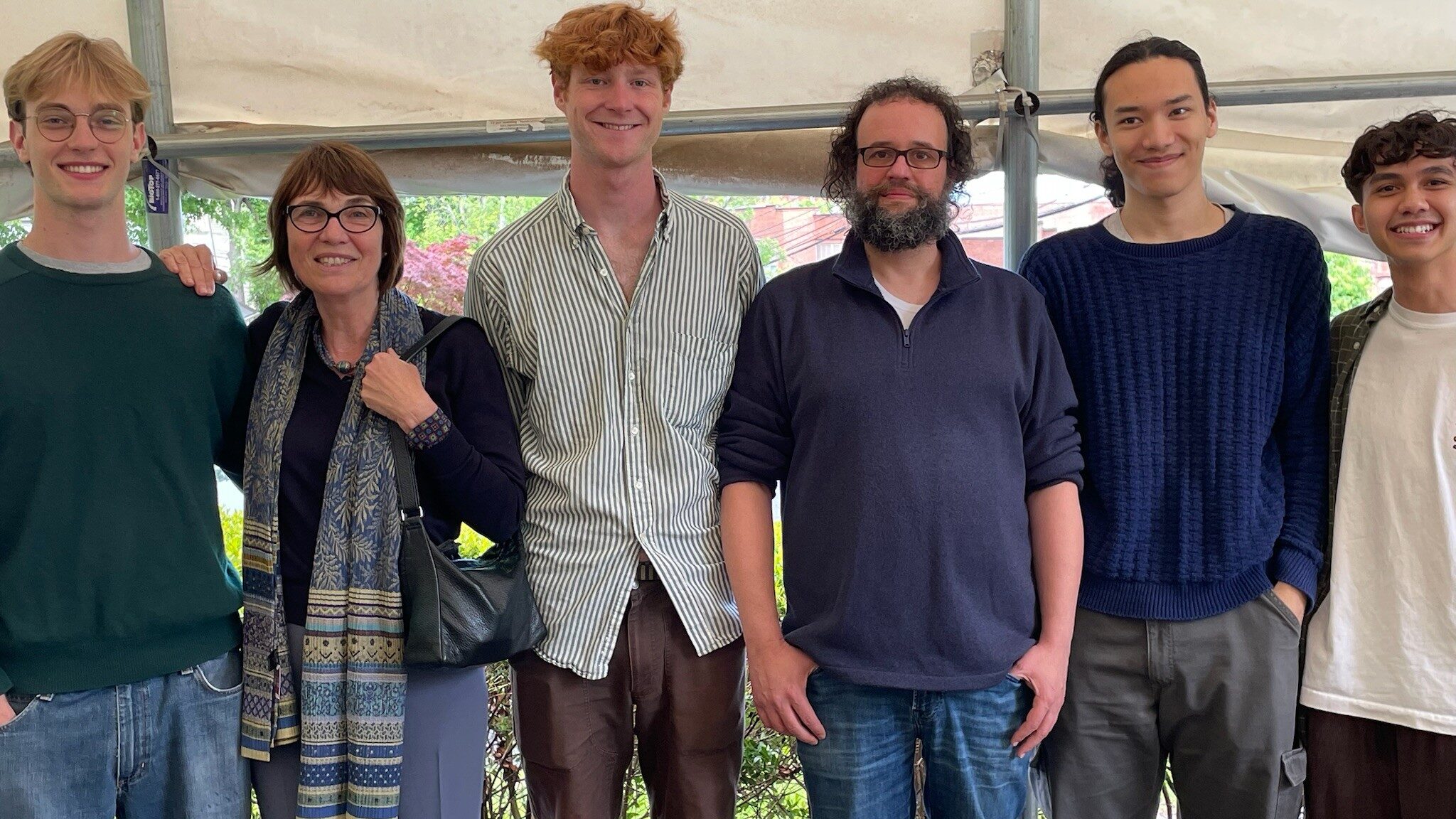
Commencement Reception 2025
(Pictured above: Daniel Holt, Iris Bork-Goldfield, Morgan Shaw, Martin Baeumel, Josh Rabinovitz, and Eja Hamid)
Eja Hamid
My experience as a German Studies major at Wesleyan has been nothing short of incredible. In my final year, I had the pleasure of co-coordinating Mittagstisch, the German conversation table, which has allowed me to engage with the German-speaking community at Wesleyan from both within and outside the major. I’ve also enjoyed studying a variety of topics as a German major at Wesleyan, from the history of Asian German cinema and the LGBTQIA+ community under Weimar Germany to, more recently, German fairy tales with Professor Baeumel.
This summer, I was excited to be back home in Indonesia, where I could brush up on my German before heading to Germany in the fall to pursue a Master’s and PhD in neuroscience at the University of Göttingen, supported by the DAAD and Max Planck scholarships. I’m grateful to the German Studies faculty and friends who have made my time at Wesleyan so meaningful, and I look forward to staying in touch with you all!
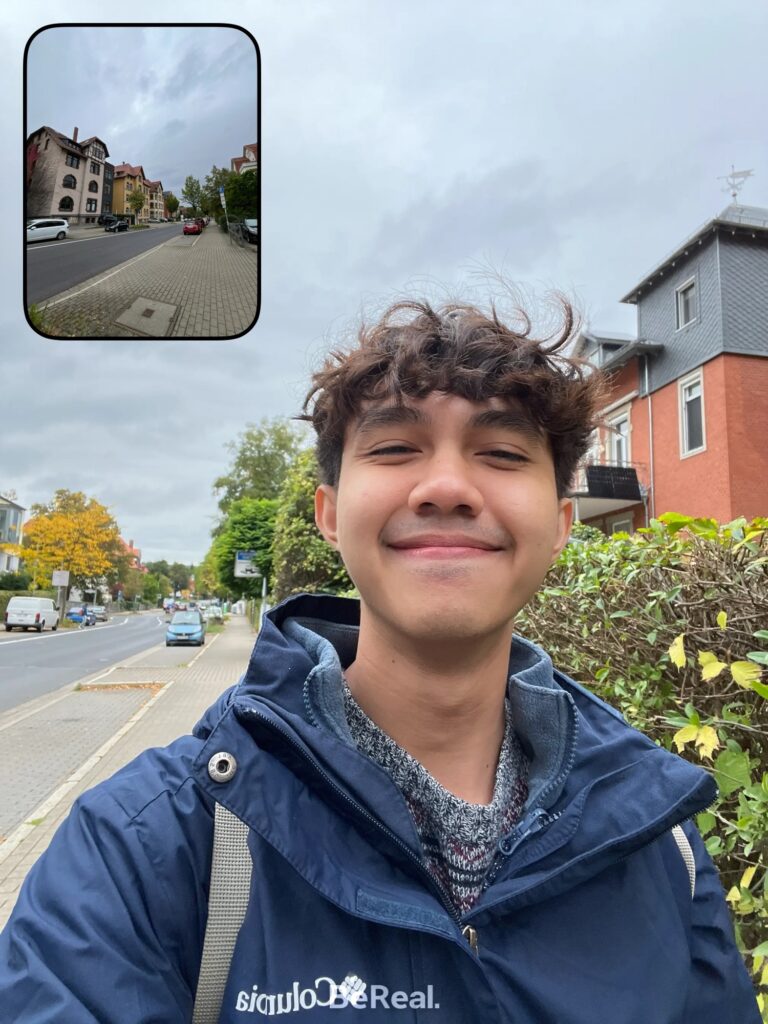
———————————————————————————————————————
Audrey Maxim-Rumley
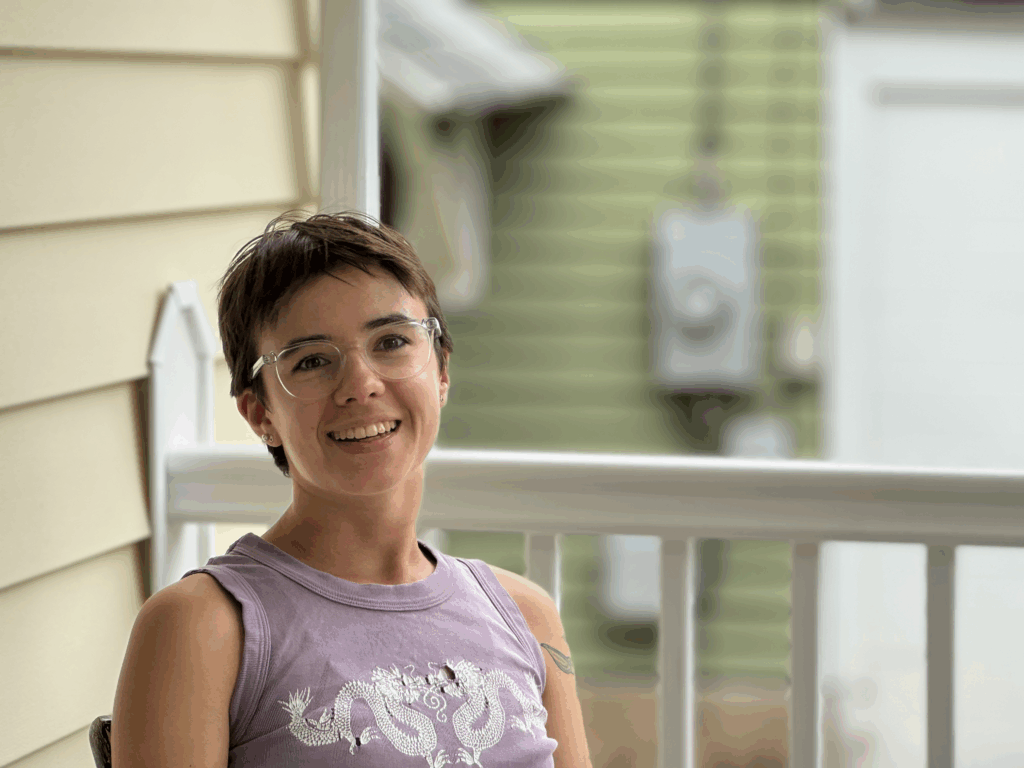
My Honors Thesis for German Studies is titled Die furchtbare, sonderbare Erinnerung: Maja Haderlaps “Engel des Vergessens”, quite possibly the first thesis in the department written in German, and a labor of love dedicated to the struggles surrounding Heimat and Herkunft. Following graduation, I will be moving home to Atlanta, GA for the summer, and then on to Vienna, Austria in September to work as a Fulbright USTA at two high schools managed by the Austrian Ministry of Forestry and Agriculture. One school focuses on teaching students how to grow wine grapes and fruit trees, and the other focuses on nutrition and cooking skills. At both schools I will be teaching English with an emphasis on the topics they are covering in their other classes, allowing me to make use of my Earth & Environmental Sciences. In my free time I plan to make the most of the nature nearby, as well as searching for the best Kaffee und Kuchen in the city and hopefully getting involved in volunteering in some way.
Morgan Shaw
After four years with the German department it is time for my bittersweet goodbye. Over my time at Wesleyan and abroad in Hamburg I have been introduced to many facets of German life and culture from history and literature to music and film. I am grateful for both the wide-ranging and insightful opportunities for learning and engagement that the department has provided, but I am sad to be leaving them and the community behind. This summer I will be going back home to Tennessee to work as a tutor for English and German as a second language as well as doing some paralegal work. In my spare time I plan on hiking and rock climbing in the surrounding area, reading, & relaxing.
Ada Nowakowska
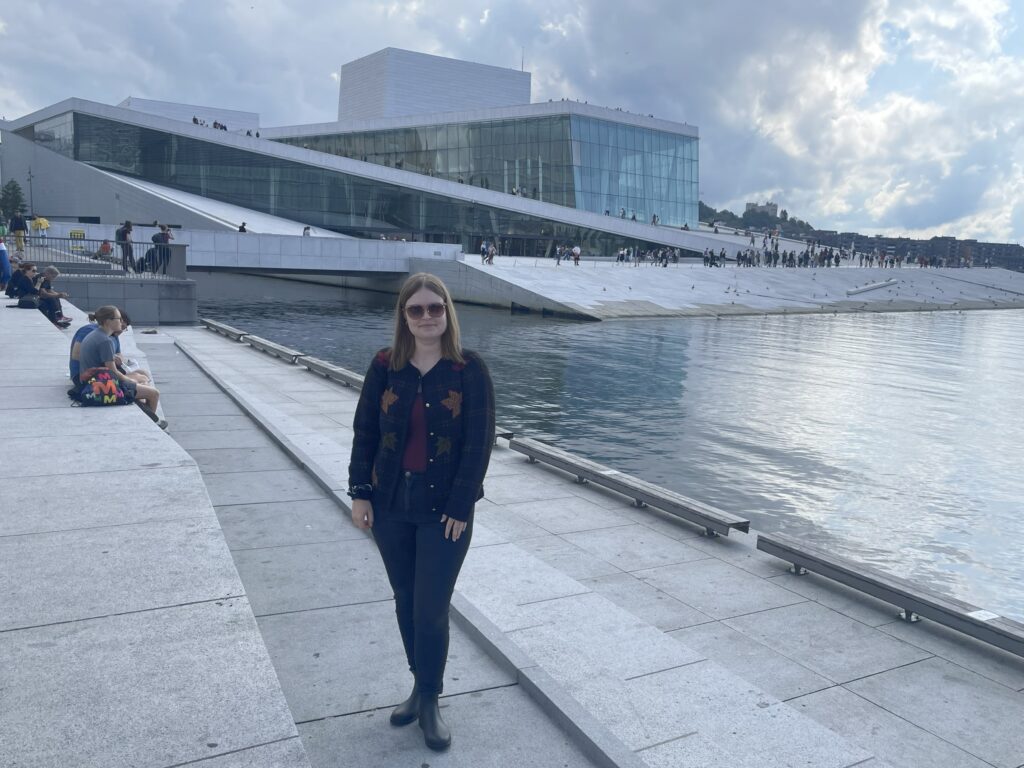
Ada graduated Wesleyan in May, 2025 with a double major in Government and German Studies, receiving the Blankenagel Prize from the department. An international student from Poland, she studied three languages during her time at Wes — German, Latin, and Russian — and she considers German by far the most difficult. With that in mind, she truly appreciates all the support, extra hours, and guidance of the GRST professors. She would especially like to thank Professor Martin Baeumel who spent the summer of 2022 as her language buddy partner, and worked wonders advocating for her as her major advisor, alongside Frau Bork and Professor Plass, securing extra funding from the Helmut and Erika Reihlen Fund that allowed her to go on her dream study abroad to Berlin in spring 2024. Ada started her Master’s of Education (M.Ed.) at the University of Oslo in August, in an international program called Education and Social Change: Childhood and Youth Studies. Currently, she is enjoying the beautiful Norwegian landscape (and stressing out about not finding a job in the most expensive country in Europe). She is planning to take the Goethe C1 German language certificate in January. Long-term, she is thinking of working in education policy, either in international bureaucracy or back home in Poland.
DAAD Study Scholarship
The German government, through the German Academic Exchange Service (DAAD), sponsors a variety of post-graduation research in Germany. Especially of note will be the DAAD Study Scholarship for a full Master’s degree program in all academic fields except the visual/performing arts, available to graduating seniors or recently graduated students. Knowledge of German is NOT required IF the program is taught in English.
You can find more information on the scholarships here, application instructions on the Master’s scholarship here, and further application instructions for all different kinds of scholarships here. A database for the more than 20,000 different programs is here.
For the Master’s Studies scholarship, Wesleyan University is a DAAD Partner University, which means that the university is able to nominate one priority candidate and submit further evaluations of each applying candidate. Any interested student should contact Prof. Martin Baeumel at mbaeumel@wesleyan.edu.
The deadline for internal submissions via email is October 13, 2025, the deadline for submission to the DAAD is October 31, 2025.
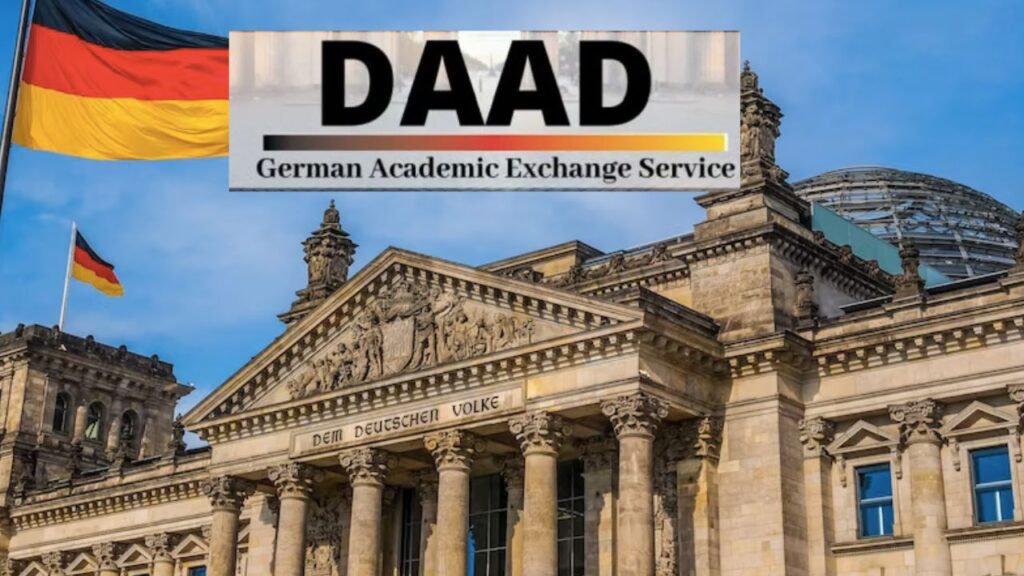
Theater as Political Intervention? Seminar with Matthias Rothe (U Minnesota)
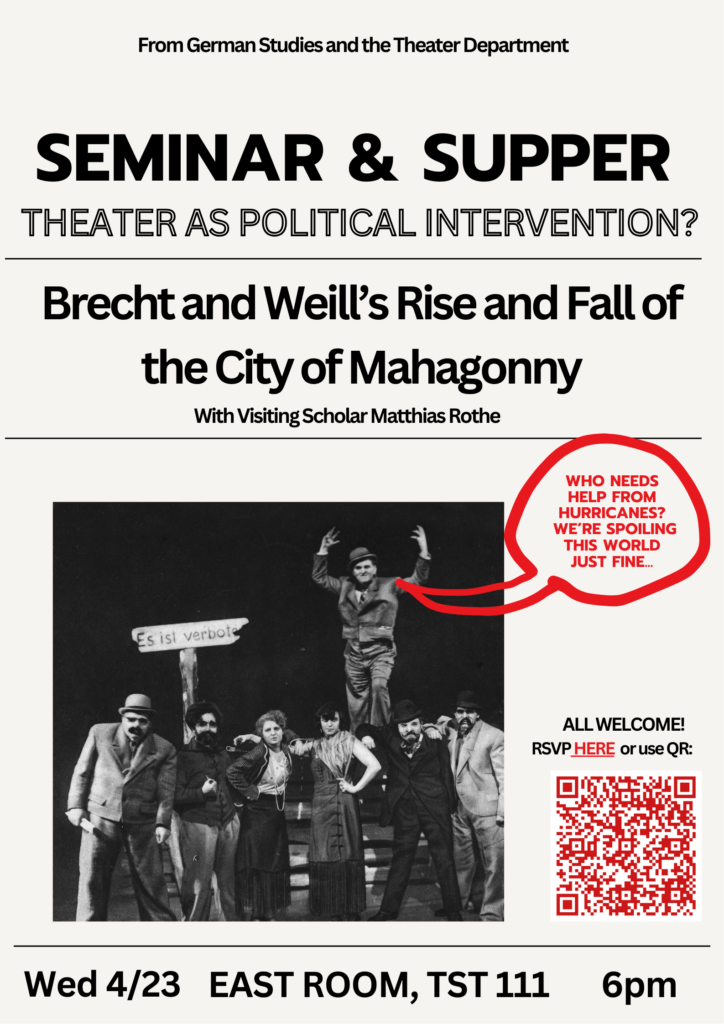
The premiere of Bertolt Brecht and Kurt Weill’s Rise and Fall of the City of Mahagonny in 1930 in Leipzig, Germany, at a time of heightened political tensions and National Socialism on the rise, turned into one of Germany’s biggest theater scandals. It was interrupted by brawls and outrage; it became the subject of discussion in parliament and had extensive nationwide press coverage. In a nutshell: A small group of left theater makers had successfully staged a political intervention. Which strategies and forms of collaboration did those involved – musicians, directors, stage designers, actors– pursue to make this happen? And most importantly, what did they want to make imaginable by their collaborative work on rehearsal and performance? What utopian potential did they seek to unlock? Matthias Rothe investigates these questions in his recent book Tropen des Kollektiven (Tropes of Collectivity). You are invited to join a seminar with him, exploring – with the example of Mahagonny – the power and limits of political theater at the end of the Weimar Republic and its lessons for today.
Matthias Rothe is Associate Professor of German Studies and Philosophy at the University of Minnesota, Twin Cities. He works on modern German literature, Avantgarde Theater, and Marxism, among other topics. Recent publications include: “Economic Psychos: Volker Braun’s Das ungezwungene Leben Kasts after Bret Easton Ellis”, in Text und Kritik 55 (2023); “‘Roundheads and Pointed Heads or the End of Avant-Garde”, in Brecht Yearbook 48 (2023); and his book Tropen des Kollektiven [Tropes of Collectivity], published by Theater der Zeit in 2024.
Click here for RSVP. The readings can be found here.
A Survivor’s Story
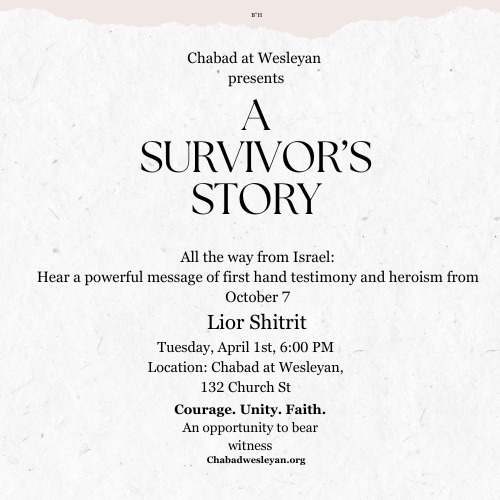
To RSVP, please use this link: https://docs.google.com/forms/d/e/1FAIpQLSfmL3kixs4SE4DlLqjySfWEAnRSL8XQsUql0Fa070qFj80TSw/viewform?usp=dialog
German Conversation

Please contact Eja Hamid if you have any questions.
Lecture by Patrick Greaney
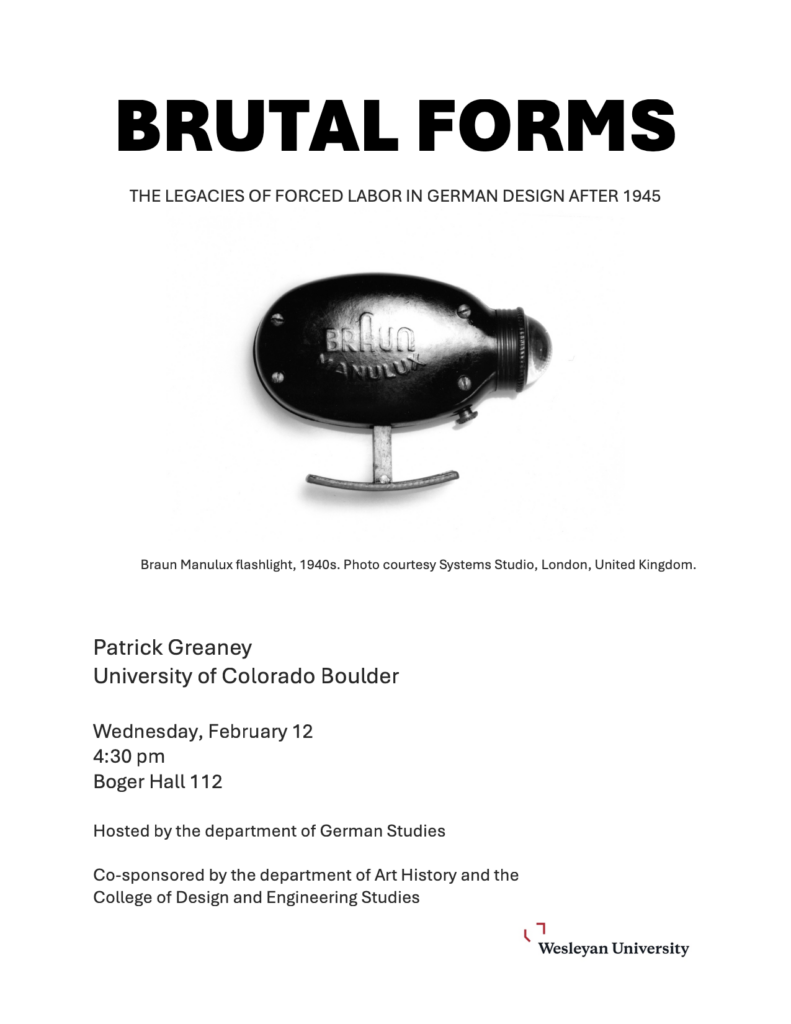
The German company Braun was founded in 1921 and became internationally prominent in the 1950s for its products designed in collaboration with Bauhaus alumni and the Ulm School of Design. Its radios, record players, and household appliances epitomized West Germany’s embrace of functionalism and quickly entered museum collections in Europe and the United States. This talk will examine the origins of Braun’s 1950s product designs in the National Socialist era and consider in particular the company’s indebtedness to forced labor.
Patrick Greaney is Professor of German and Humanities at University of Colorado Boulder. He is the author of Quotational Practices: Repeating the Future in Contemporary Art (2014) and Untimely Beggar: Poverty and Power from Baudelaire to Benjamin (2008). He has edited or co-edited six books, including An Austrian Avant-Garde (2020)and Conceptualism and Other Fictions: The Collected Writings of Eduardo Costa, 1965-2015 (2016), and his most recent literary translations and co-translations are Heimrad Bäcker’s Documentary Poetry (2024) and Carlos Soto Román’s 11 (2023)
Living and Working in Hamburg, Germany
Isaac Ostrow’26, became the first Wesleyan student to attend the Smith in Hamburg Practicum Program with his participation this last fall. He interned at the Hamburg Institut, which offers counseling and research in questions of energy transition.



